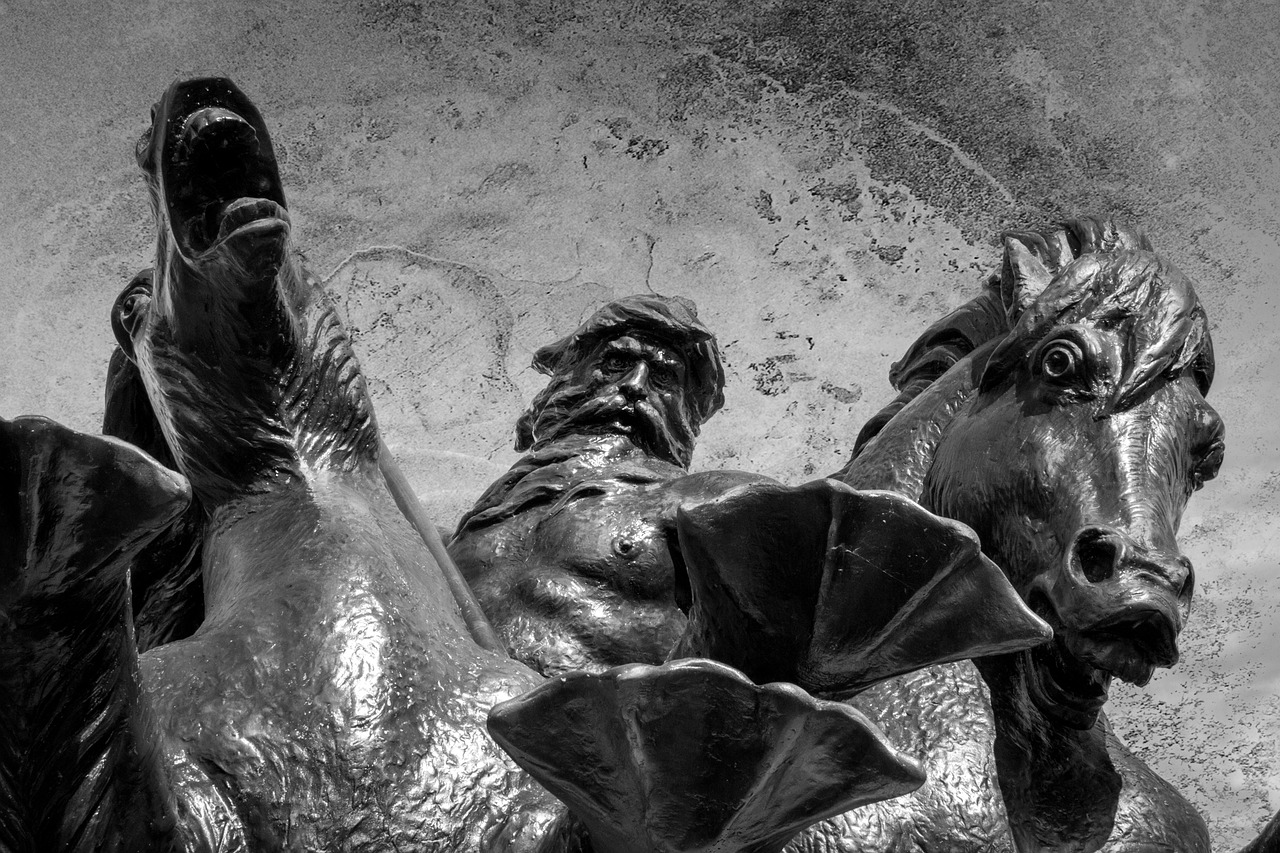In the realm of Ancient Greek mythology, Poseidon is revered as the god overseeing the sea, storms, earthquakes, and equine creatures. Often equated with the Roman deity Neptune, Poseidon holds a significant position, being the sibling of Zeus and Hades—deities representing the sky and the underworld, respectively.
Who is Poseidon?
As the guardian of sailors and all who venture into the oceans, Poseidon assumes a vital role. Various interpretations of the ancient Greek creation myth recount how, after vanquishing their father Cronos (who is also referred to as Kronos), Poseidon and his brothers divided their realm among themselves, with Poseidon claiming dominion over the sea.
The Role of Poseidon in Greek Mythology
Poseidon emerges prominently in numerous ancient Greek tales, poems, and epics. A noteworthy appearance is in Homer’s Iliad, where he aids the Greeks during the Trojan War against the Trojans. Additionally, in Plato’s dialogues Timaeus and Critias, he presides over the fictional island of Atlantis, which was thought to have sunk into the depths of the Atlantic Ocean.
Among the pantheon of Greek gods, Poseidon is frequently characterized as one of the most tempestuous deities, mirroring the volatile and sometimes perilous nature of the ocean. Certain legends illustrate Poseidon opposing the heroes, attempting to thwart their endeavors by conjuring storms.
In earlier myths, Poseidon is depicted in a horse-like form. His link to earthquakes arises from the belief that these natural disasters resulted from rock disintegration caused by the sea’s movements.
One significant narrative involves Poseidon’s competition with Athena, the goddess embodying wisdom and warfare, for the favor of the citizens of ancient Athens. In the story, both deities present their gifts: Poseidon creates a spring with his trident, which produces only saltwater, while Athena offers an olive tree, a vastly more useful gift. The people favor Athena’s offering, infuriating Poseidon, who unleashes his powers in a fit of rage, threatening to inundate the region.
Poseidon’s Trident
Often depicted alongside Poseidon is his famous trident, an emblematic symbol that aligns with the ocean, believed to derive from early fishing tools. In ancient art, Poseidon is also illustrated riding a chariot drawn by several mythical winged horses, further emphasizing his connection to both the sea and horse symbolism.
Poseidon in Contemporary Culture
Poseidon’s influence persists today due to the enduring nature of ancient Greek mythology. Numerous statues honoring Poseidon can be found across various nations, including Sweden, England, Germany, and Denmark, highlighting his association with the ocean. Modern literature and media frequently invoke the persona of Poseidon or similar characters to symbolize the sea and its mystical attributes.
The Meaning Behind Poseidon
In the context of Ancient Greece, Poseidon represents the unpredictable aspects of the ocean. Stories and fables frequently personify the sea, attributing emotional states to it, such as anger during storms or tranquility in favorable weather. Although modern understanding depersonalizes the ocean, the literary tradition of giving non-human entities human-like qualities remains prevalent, extending to natural phenomena like the weather and mortality.
Five Fascinating Facts About Poseidon
- Neptune is the Roman counterpart of Poseidon.
- Poseidon ranks among the most prominent figures in Ancient Greek mythology.
- He fathered numerous offspring, including the famed cyclops Polyphemus.
- According to legend, his mother Rhea saved him from being devoured at birth.
- Poseidon is regarded as one of the most formidable deities in Greek myth.
Educating Children About Poseidon and Greek Deities
For those looking to further explore Ancient Greece and its rich cultural heritage, there are various resources available that delve into the lives and legends of these ancient gods.
Related Topics to Explore:
- Ancient Greece
- Greek Culture
- Governance in Ancient Greece
For an engaging learning experience, teaching materials about Greek mythology suitable for children can enhance understanding and enjoyment of these ancient tales.



